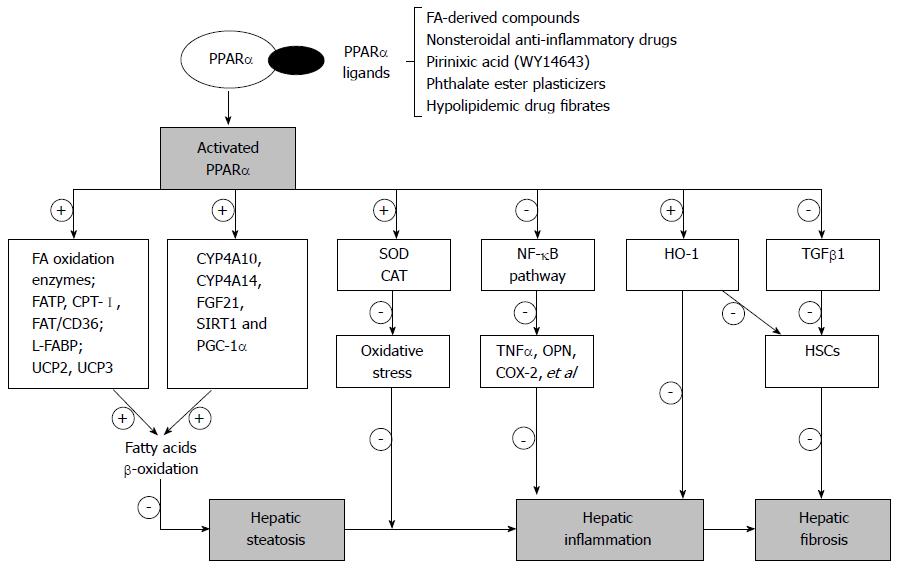Copyright
©2014 Baishideng Publishing Group Inc.
World J Gastroenterol. Jul 7, 2014; 20(25): 8055-8060
Published online Jul 7, 2014. doi: 10.3748/wjg.v20.i25.8055
Published online Jul 7, 2014. doi: 10.3748/wjg.v20.i25.8055
Figure 1 Protective role and partial mechanism of peroxisome proliferator-activated receptor α in alcoholic liver disease.
Peroxisome proliferator-activated receptor α (PPARα) plays a critical role in modulation of hepatic lipid metabolism, oxidative stress, inflammatory response and fibrogenesis in alcoholic liver disease. Up-regulation of PPARα by its agonists (e.g., fibrates, WY14643) leads to increased expression of fatty acid oxidation and transport enzymes, alleviated oxidative stress by increasing the expression of genes involved in antioxidant enzymes (e.g., SOD and CAT), inhibited through activating nuclear factor kappa B (NF-κB) signal pathway and decreased fibrogenesis factors (e.g., TGF-β1 and HSC activation). SOD: Superoxide dismutase; CAT: Catalase; TGF-β1: Transforming growth factor beta 1; HSCs: Hepatic stellate cells; COX-2: Cyclooxygenase-2; HO-1: Heme oxygenase-1; TNFα: Tumor necrosis factor α; OPN: Osteopontin.
- Citation: Nan YM, Wang RQ, Fu N. Peroxisome proliferator-activated receptor α, a potential therapeutic target for alcoholic liver disease. World J Gastroenterol 2014; 20(25): 8055-8060
- URL: https://www.wjgnet.com/1007-9327/full/v20/i25/8055.htm
- DOI: https://dx.doi.org/10.3748/wjg.v20.i25.8055









